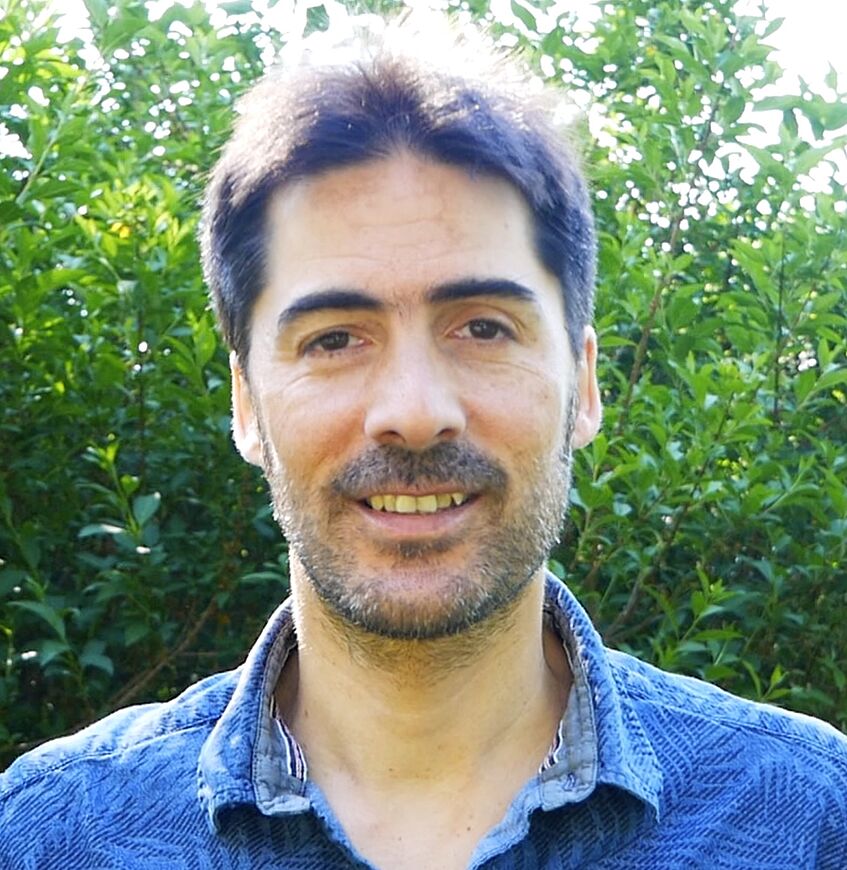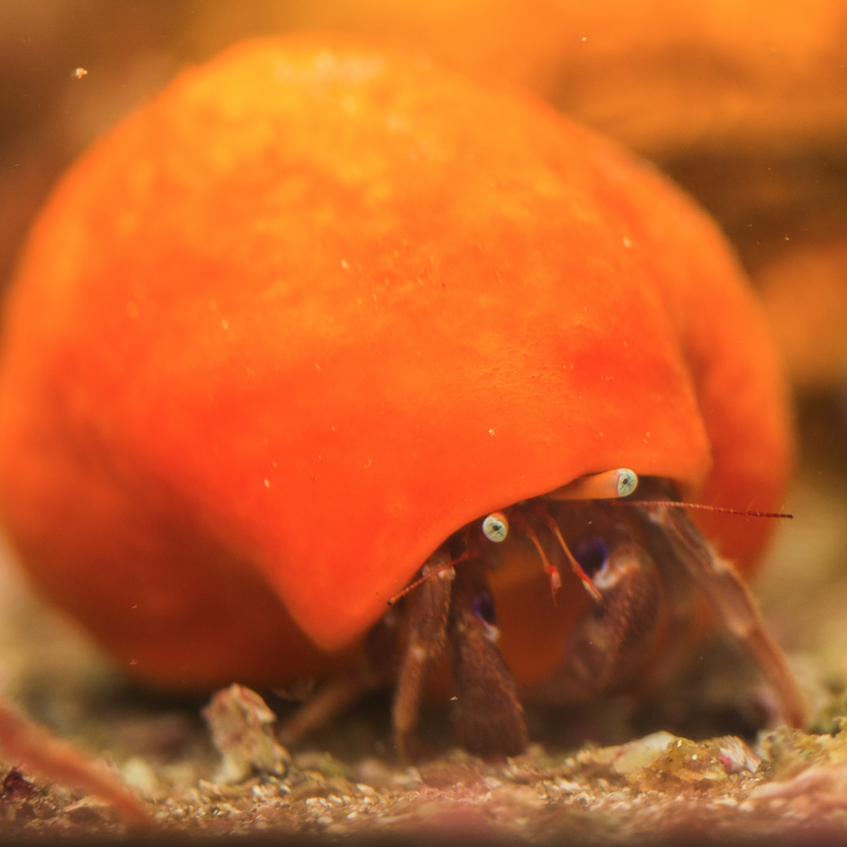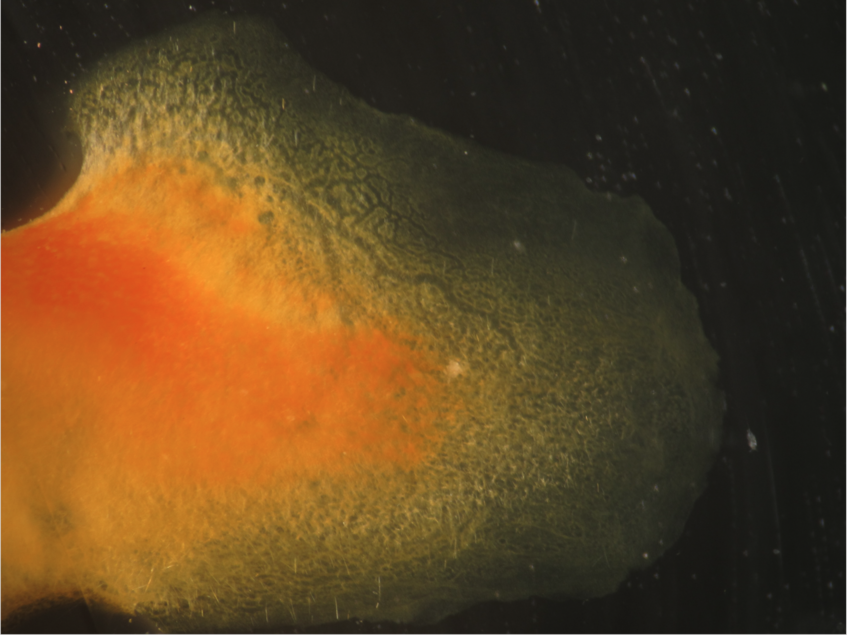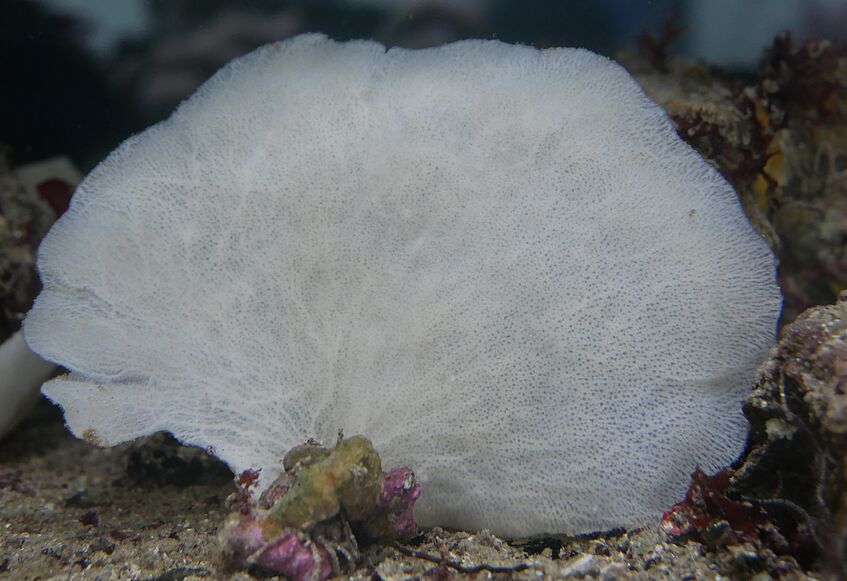The Revilla-i-Domingo Lab

Dr. Roger Revilla-i-Domingo
Group Leader
roger.revilla-i-domingo@univie.ac.at
00-43-650 293 0734

Adult specimen of our main sponge model system, Suberites domuncula.

Regeneration of a functional Suberites domuncula sponge in a petri dish.

Deep-sea polar sponge Phakellia ventilabrum in our cold water system.
Research Team Publications Funding Contact
Stem cells, early animal evolution and deep-sea sponge ecology
Our lab is interested in unravelling and understanding the gene regulatory networks that control stem cell functions in sponges. Our work mainly capitalizes on the establishment of a novel sponge regeneration system, which allows us to interrogate stem cell self-renewal and differentiation processes. We are implementing a number of single-cell transcriptomic and genomic techniques, as well as advanced computational methods, to infer gene regulatory interactions. Our research addresses fundamental questions in three main areas:
Unravelling Basic Principles of Regeneration and Stem Cell Biology:
Sponges are very simple animals, lacking organs, a nervous system and muscles. In addition, they have an extraordinary regenerative capacity. Therefore, they promise to be a very good model system to uncover basic principles of regeneration and stem cell biology. In the past, we established a novel in vitro whole-body regeneration system, that allows us to regenerate full sponges in petri dishes within a few days. Currently, we are exploiting this system, to interrogate the molecular mechanisms underlying the regeneration process as well as stem cell functions. In addition, we are also characterizing the sponge microbiome and investigating its role in regeneration and stem cell processes.
Understanding Early Animal Evolution:
Sponges are one of the most basally branching animal phyla, and therefore particularly suited to reconstruct early animal evolutionary events. An estimated 600 million years ago, the first multicellular animal, with the ability to generate distinct cell types through the process of stem cell differentiation, evolved from a unicellular ancestor. Despite its profound importance, we still know very little about this evolutionary event. Dissection of sponge stem cell differentiation trajectories through single cell RNA-sequencing analyses, has allowed us to propose mechanisms that may have been important in the evolution of animal stem cell differentiation. Currently, we are functionally testing key components of these mechanisms. In addition, in collaboration with the Ruiz-Trillo lab in Barcelona, we are dissecting cell state transitions in unicellular organisms, in order to elucidate key gene regulatory changes that took place during the evolution of multicellularity.
Exploring Deep-Sea Sponge Ecology:
Sponges are ecologically very important. In deep-sea polar ecosystems, sponges and their microbiomes are the only organisms capable of capturing inorganic carbon and they support an enormous variety of marine life. We have recently been able to set up a system to maintain sponges from the deep-sea polar region in the lab. Exploiting the unique advantage of having access to such sponges in the lab, we have established single cell genomics and transcriptomics methods, especially designed to allow implementation in the deep-sea by means of a remotely operated underwater vehicle (ROV). These methods will allow us to address fundamental questions about the critical ecological role of sponges in the deep-sea polar environments: How do they interact with their microbiome and environment? How sensitive are they to the changing environmental conditions?
